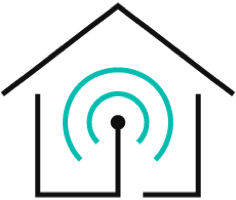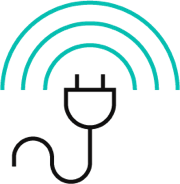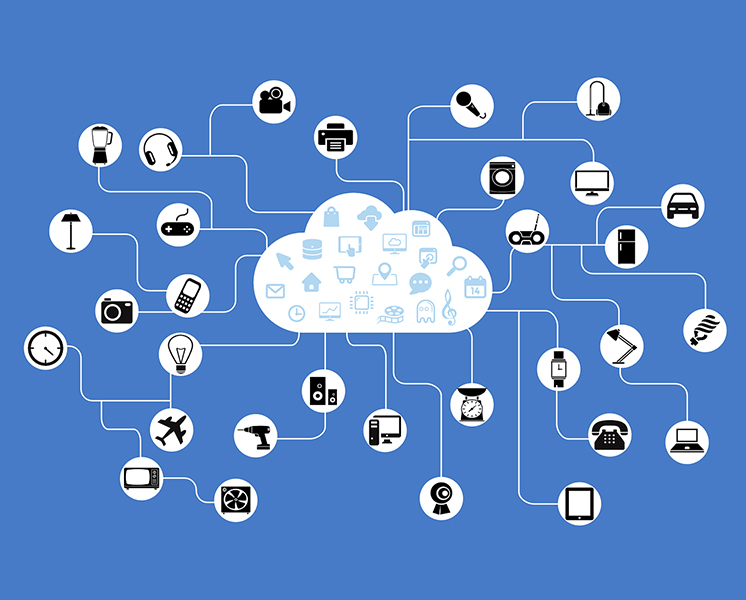You might have come across the term Smart Home recently as it’s a subject that’s trending everywhere, especially among aesthetes.
But what is a smart home system anyway? The smart home system helps you create and control your own home automation.
It allows you to manage your home from anywhere in the world. With smart home systems, you can control appliances and other smart devices with your smartphone or tablet.
- 1. What is a Smart Home System and How Does it Work?
- 2. Why is A Smart Home System Important?
- 3. How to Build a Smart Home System?
- 4. Pros and Cons of a Smart Home System
- 5. Smart Home Ideas that Work
What is a Smart Home System and How Does it Work?
In short, a smart home works by interconnecting various home appliances and devices into one central location which can be your smartphone or laptop.
Then you can conveniently control all the home appliances through that one device from home or outside.
From lights, televisions, locks, and thermostats to security cames or refrigerators even, almost all electronic devices can be handled using a smart home system.
Equipped with self-learning capabilities, a smart home system can train itself to gradually adapt its’ activities according to the homeowner's requirements and schedules, automating the homeowner's interactions with the home appliances.
Why is A Smart Home System Important?
There is a substantial rationale behind the emergence of smart home systems. Smart home systems offer a lot of amenities that make people prefer this technology. Here are some of the key reasons why they’re deemed highly crucial:
- Smart home systems offer authentic data and insights into energy consumption behaviors and help make homes more energy efficient.
-
Smart home systems make life easier by automating an array of different home activities such as:
- Turning the lights on or off
- Adjusting temperature levels in the home
- Locking and unlocking doors while exiting or upon arriving
- Smart home systems maximize the security of the property with real-time surveillance and automated safety measures like sounding an alarm if intruders want to break in.
How to Build a Smart Home System?
Building a smart home system is a slightly complicated yet interesting process. Let’s have a brief overview of how smart home systems are built:
-
Select a smart home platform. It can be
- Hardware-based systems such as Wink Hub or Amazon Echo
- Software-based systems like Yonomi
- Hybrid systems like Google Home or Apple HomeKit blend both hardware and software-based systems
-
Start adding different home appliances to the smart home platform. This can include:
- Adding lights. Use smart lights that can turn themselves on when you enter a room and turn themselves off automatically when you exit.
- Adding detectors such as leak and smoke detectors
- Add security-enhancing appliances such as smart locks, doorbells, window sensors, and cameras.
- Configure and integrate the added appliances with your smart home platform.
You may be interested in >> Best smart home system devices in 2022
Pros and Cons of a Smart Home System
Smart home systems offer a lot. From automating the regularly used devices in the home to ramping up the security of your home, smart home systems are definitely the future.
Now, we’d like to reflect on some benefits and several potential issues with the smart home system.
Centralized Control Adds Convenience to Life
Smart home systems tie up all the different devices in your house into one, single, centralized location.
It connects all your smart home appliances together for better management and effortless operation.
Take, for example, the Evvr center. It can accommodate up to a staggering 3000 devices, integrating all your home appliances from thermostats, lights, and shades to security cameras, locks, and refrigerators.
Overall, a smart home system simplifies your life as you get to control and monitor all the different devices in one place.
Improved Household Security
Smart home systems can improve your home security to a certain degree. Smart security systems have tons of different devices and strategies which you can use to prevent occurrences.
You may get notified on your phone, when/if any unauthorized entries are taking place, so you can take action instantly. The smart cam footage lets you monitor what’s happening in your house in real-time.
The smart alarm system may automatically sound the alarm to alert the people living nearby and send the intruder running for his life
That’s not all, smart home security systems offer a lot more in terms of bringing evidence to the table. Security cam and smart video lock footage can offer the law enforcement agencies vital clues to catch the suspect fast.
You can use this smart relay to easily use your surveillance cams or other devices for smart operation via apps or voice commands.
Moreover, for those who value security over anything else, local smart home platforms would certainly be the best option. They don’t connect to the cloud so they’ll be much more secure, as no third party would have hands on your confidential data such as security cam footage.
This local smart house system platform by Evvr can transform the security parameters of your household.
Cost and Energy Efficient
Smart home systems are exceptionally cost-effective. Intelligent home automation will instantly turn off any devices that you’re not using which will greatly reduce the additional expenditure on the electricity bills.
The system can minimize your energy consumption up to a whopping 30% getting your electricity cost down enormously.
As well as, cutting costs the smart home system will also reduce energy consumption to a certain degree added sustainability.
If you want to save up to hundreds of dollars each month on electricity bills, you check this smart home system out, which would offer outstanding cost management capabilities.
Highly Dependable Technology for Children and Older Individuals
Smart home systems can work pretty well for children and older folks who have difficulty getting around. It will offer better surveillance, so you get to assess the situation at home in real-time when you’re away at work.
Moreover, home automation features like smart doorbells, speakers and smart thermostats would make life easier for people with impaired movement.
Some Negative Issues You Should Consider
Despite the numerous positives, a smart home system may have some issues
Large Upfront Cost
Smart home systems come with a large upfront cost. Installation and getting required components can increase the initial expenditure to a certain degree.
May Seem Complicated for New Users
Another issue with smart home systems is their technologically advanced operational requirements. For those who don’t understand technology much, it may seem a bit difficult to operate it.
Can be Prone to Hacking
Despite the numerous security enhancements, the smart home system is prone to technological manipulation. Hacking is one of the biggest threats to smart homes. However, a report found that 89% of burglars would prefer a regular home for intrusion over a smart home.
Yes, like any other mechanisms, smart home systems do have some minor issues as well. But its’ benefits severely outweigh the problems. More research is being conducted to make this system more secure and convenient. So, the future looks good for smart home systems on the whole.
Smart Home Ideas that Work
If you’re not sure how you’d like to go about building your smart home empire, here is a list of ideas you can try:
- Use smart locks to safeguard your home. You can start by automatizing the entry points. Get smart locks for your home. You’d be able to lock and unlock the door from anywhere, give access to your loved ones whenever needed, and set up auto locking upon exiting or auto unlocking when you arrive at the door.
- Use a smart thermostat to reduce energy consumption. You can also bring in a smart thermostat and connect it with your center. It will adapt to your using habits and adjust the temperature accordingly, reducing electricity costs.
- Utilize smart home appliances to maximize automation. Smart home appliances like smart refrigerators, smart TV, or smart dishwasher makes your life a lot simpler. For instance, a smart refrigerator can assess the condition of the foods stored inside and give you a heads up whenever any food has the possibility to go bad. It can also inform you which grocery supplies are running low.
The possibilities of smart home technologies are virtually unlimited. With the smart home industry's continued expansion, the options available and their effects on your everyday life will expand along with the smart home industry's continued expansion.
Bottom Line
The whole home automation system has long been discussed as the holy grail for homeowners and tenants alike, but for many, it was merely a pipe dream.
However, now that smart home systems are becoming more readily available and more cost-effective, this dream of centralized control can become a reality.
Through systems like Microsoft's HomeOS and Nest, smart homes are quickly becoming the standard.
So, when are you getting your own smart home experience? Contact Us if you want to book a sample of Evvr.






.png?v=0)








